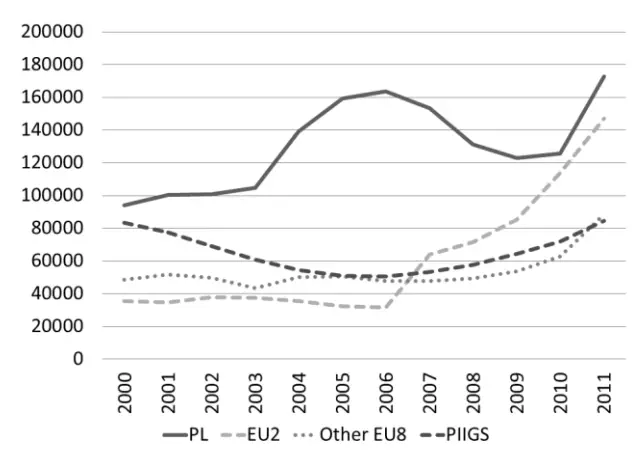Migration 10 Years After: EU Enlargement, Closed Borders, and Migration to Germany

Abstract
We study how the EU enlargement in 2004 and the Great Recession in the late 2000s have shaped the scale and composition of migration flows from the New Member States to Germany. We demonstrate that immigration increased substantially despite the restrictions on the German labor market, and that net flows decreased to zero at the outset of the recession. The cohorts arriving after 2004 had on average a lower education than the previous arrival cohort, but the wage gap compared to Germans became narrower over time. Almost 10 years after EU enlargement, we re-assess the transitional arrangements, and argue that Germany would have been better off, had it immediately opened its labor market. Finally, the Great recession allows us to study how effective migration within the EU is as an adjustment mechanism. Our data clearly show an increase in immigration from countries that were hit by the crisis, although the annual net flows are still too small to significantly reduce unemployment in the countries hit by the crisis.